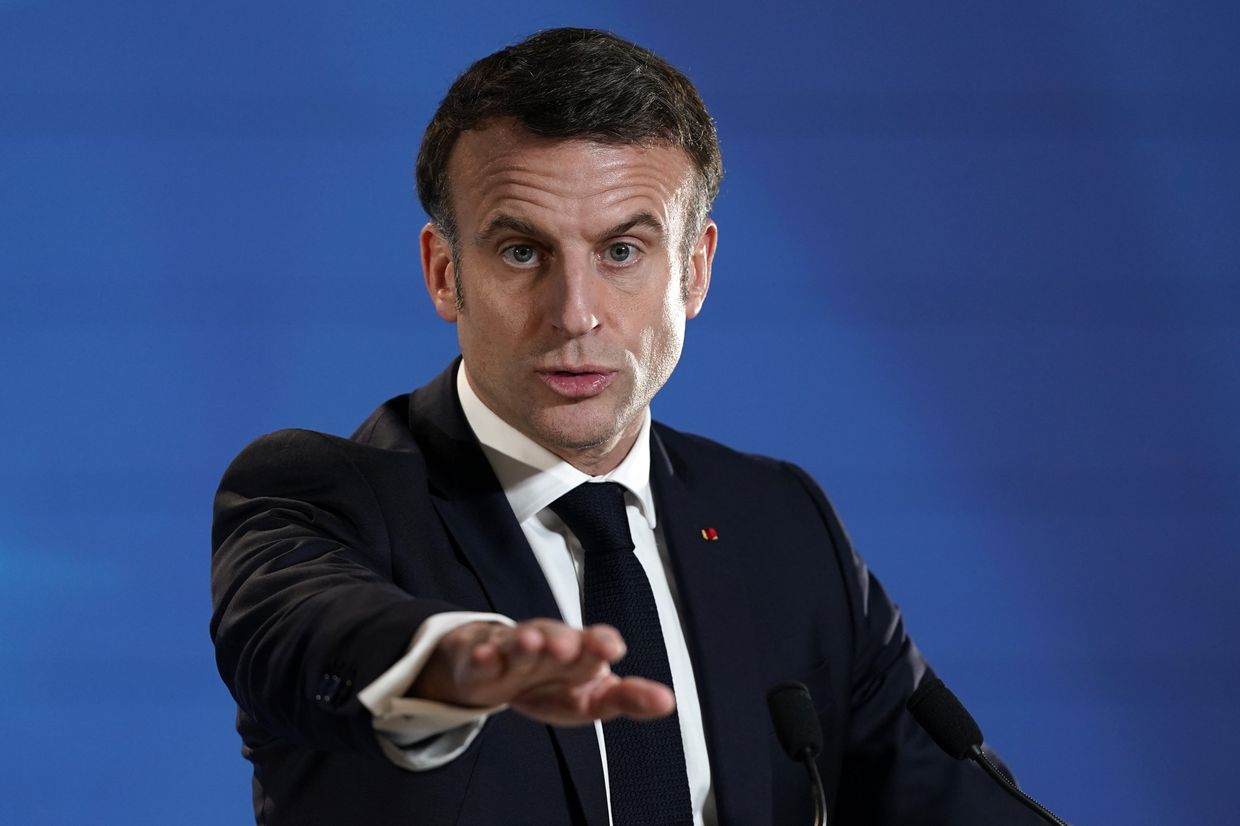Macron, Scholz meet in Berlin to ease tensions over Ukraine strategy

German Chancellor Olaf Scholz, French President Emmanuel Macron, and Polish Prime Minister Donald Tusk met in Berlin on March 15 to coordinate their countries' support for Ukraine.
The German and French leaders meet amid a growing rift in their public views on how to best help Kyiv repel Russian aggression.
An advocate of reaching out to Vladimir Putin in the first days of the full-scale war, Macron recently took a seemingly unexpected turn, saying that the allies should stop restraining themselves with red lines and introduce strategic ambiguity in their approach toward Ukraine and Russia.
The French president seemed to have taken other leaders, namely Scholz, aback with his earlier remarks that the Western countries should not rule out deploying their own troops on the ground in Ukraine. Macron reiterated this position in a television interview on March 14.
The German chancellor and several other NATO leaders emphatically rejected this option. Berlin has also pointed out that it provided considerably more arms and equipment to Ukraine than France, being second only to the U.S.
People close to Scholz said that Germany could not take the "strategic ambiguity" stance the same way as France, as Berlin lacks nuclear weapons and relies on NATO for its nuclear umbrella, The New York Times reported.
According to the outlet, French and German officials privately admit that there is a "serious clash between the two leaders," which is also reflected in their different personal styles. Scholz publicly described his relationship with Macron as "very friendly."
The German chancellor attracted criticism even from German lawmakers and officials for repeatedly refusing to supply Ukraine with Taurus long-range missiles, while France has already provided its SCALP missiles.
The meeting of leaders from France, Germany, and Poland is also a move to revive the so-called Weimar Triangle, a cooperation framework the three countries established in the early 1990s.
While cautious, Warsaw made statements favoring Paris' position. Polish Foreign Minister Radoslaw Sikorski said last week that "the presence of NATO troops in Ukraine is not unthinkable."
"I appreciate French President Emmanuel Macron's initiative because it is about Putin being afraid, not us being afraid of Putin," Sikorski said.












